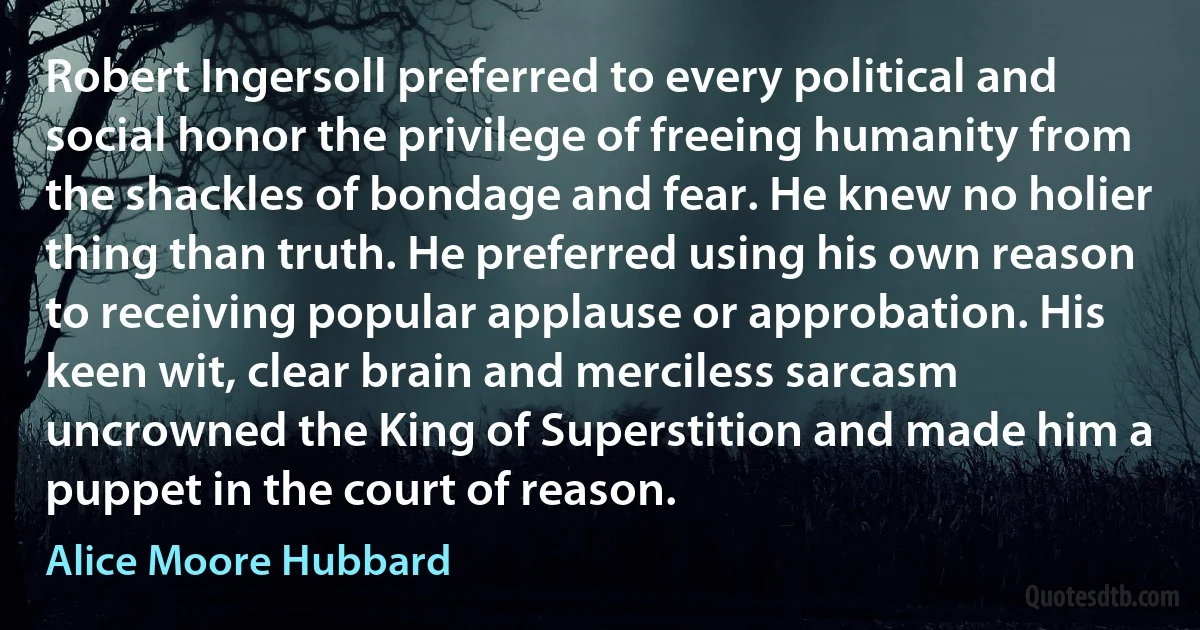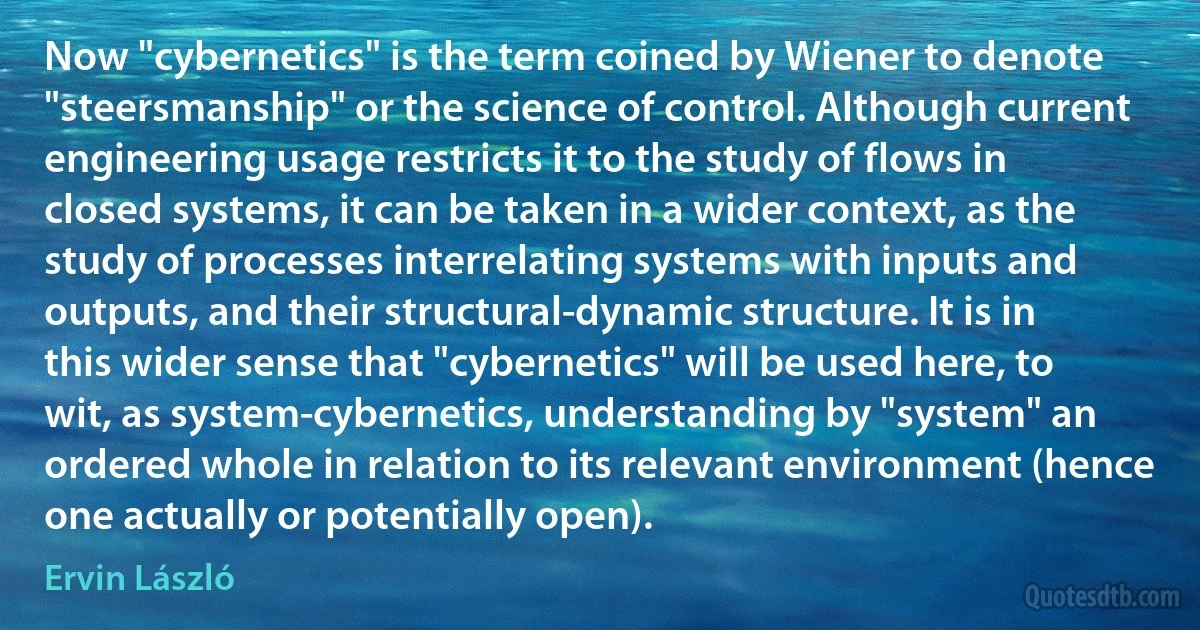Wit Quotes - page 23
He came to science fiction in 1952; some two or three years later, somebody told him he was writing parables, and Sheckley believed it. The stripped quality of his subsequent work, and its utter divorcement from fact and logic, are traceable to this unfortunate influence.
He has a unique touch with a wacky civilization, a clean, compact style, and a satirical wit that is dry without being bitter.

Robert Sheckley
Madam President, on Saturday evening, a great loss echoed throughout our country. Six decades of patriotic service came to an end. We have suspected for some time that we would bid farewell to our colleague, the senior Senator from Arizona, John McCain. John took full advantage of the months since his diagnosis. His hard work continued, but happy reminiscing, fond farewells, final reflections, and time with family actually came to the fore. I was privileged to spend a small share of that time with John. We sat on his back porch in Sedona under the desert sky, replaying old times. John did things his way these last months. For his colleagues here, the time confirmed a sad but obvious truth: The Senate won't be the same without John McCain. I think it is fair to say that the passion John brought to his work was unsurpassed in this body. In more than 30 years as a Senator, he never failed to marshal a razor-sharp wit, a big heart, and, of course, a fiery spirit.

Mitch McConnell
Opinions offensive are of two sorts: some savoring of impiety, and some of incivility.
Against the first, Christ Jesus never called for the sword of steel to help the sword of the spirit, that two-edged sword that comes out of the mouth of the Lord Jesus...
The second sort, to wit, opinions of incivility, doubtless the opinions as well as practices are the proper object of the civil sword...

Roger Williams (theologian)
Usually, my witticisms are composed on the spot. They're simply intrinsic; an inseparable, integral, organic part of my writing process - doubtlessly because humor is an inseparable, integral part of my philosophical worldview. The comic sensibility is vastly, almost tragically, underrated by Western intellectuals. Humor can be a doorway into the deepest reality, and wit and playfulness are a desperately serious transcendence of evil. My comic sense, although deliberately Americanized, is, in its intent, much closer related to the crazy wisdom of Zen monks and the goofy genius of Taoist masters than it is to, say, the satirical gibes on Saturday Night Live. It has both a literary and a metaphysical function.

Tom Robbins
Every excess causes a defect; every defect an excess. Every sweet hath its sour; every evil its good. Every faculty which is a receiver of pleasure has an equal penalty put on its abuse. It is to answer for its moderation with its life. For every grain of wit there is a grain of folly. For every thing you have missed, you have gained something else; and for every thing you gain, you lose something. If riches increase, they are increased that use them. If the gatherer gathers too much, nature takes out of the man what she puts into his chest; swells the estate, but kills the owner. Nature hates monopolies and exceptions.

Ralph Waldo Emerson
He had a reservoir of learning, from which he drew gracefully and effortlessly. But the most marked quality of his judicial and non-judicial writing was not the ability to borrow an apt quotation or to find an idea well expressed by one who had written before him; it was the ability to think brilliantly in original and bold fashion and to express his thoughts in forceful and eloquent English of a style inimitably his own. His writing was pithy and pungent; yet he never sacrificed clarity of thought for a well-turned phrase. He was a master of the paradox; he had a great love of alliteration and his antithetical statements were gems. Yet his wit never descended to the frivolous; it always added a barb to the telling point. His wit was especially telling when turned upon himself or his Court.

Robert H. Jackson
God knows I have little interest in animals, but I do not like to see them insulted. I used to feel the same thing in the days when I was a frequent visitor at the London Zoo; in the lion house there were always ninnies who mocked the captive lions. I often wished that the bars would turn to butter, and that the great, noble beasts would practise their particular form of wit upon the little, ignoble men.

Robertson Davies
Of rhymes I printed seven volumes-
The list concludes John Murray's columns .
But then I only sung of passions
That do not suit with modern fashions;
Of Incest and such like diversions
Permitted only to the Persians,
Or Greeks to bring upon their stages-
But that was in the earlier ages
Besides my style is the romantic,
Which some call fine, and some call frantic;
While others are or would seem as sick
Of repetitions nicknamed Classic.
For my part all men must allow
Whatever I was, I'm classic now.
I saw and left my fault in time,
And chose a topic all sublime-
Wondrous as antient war or hero-
Then played and sung away like Nero:
The subject has improved my wit so,
The first four lines the poet sees
Start forth in fourteen languages!
Though of seven volumes none before
Could ever reach the fame of four...

Lord Byron
The ideal of Morality has no more dangerous rival than the ideal of highest Strength, of most powerful life; which also has been named (very falsely as it was there meant) the ideal of poetic greatness. It is the maximum of the savage; and has, in these times, gained, precisely among the greatest weaklings, very many proselytes. By this ideal, man becomes a Beast-Spirit, a Mixture; whose brutal wit has, for weaklings, a brutal power of attraction.

Novalis
Politics was a struggle for power, in its purest and simplest terms. If the voters were lucky, the winner would go on to improve their lot, because he would need their votes next time. Or because he enjoyed being popular. But issues were irrelevant. Always had been, probably. Once the age of mass communications arrived, presidents became entertainers, celebrities, if they were smart. FDR used his fireside chats; Kennedy had allowed spontaneous questions at press conferences, relying on wit and charm. Reagan knew from the films exactly how a president should behave, and he had exactly enough acting talent to bring it off. In that sense, he was the first modern president.

Jack McDevitt
Carlson is comfortably familiar. He's one of us, an entertaining companion at lunch, full of gossip and wit and even ideas. At the same time, over the years, he has become radically unfamiliar. There are not many journalists or other people regarded as public intellectuals who are promoters of Trump and Trumpism, and who share the president's fluency in insult and indignation. It is the composite nature of Carlson's character-belonging at once to two divergent worlds-that makes him interesting to fellow journalists in a way that, say, Sean Hannity, with a larger audience and more direct influence with Trump, generally is not. Many colleagues once viewed him as an important voice of the intelligentsia. Many now believe he has joined the dumbgentsia. They wonder, as Columbia Journalism Review put it, "What happened to Tucker Carlson?”.

Tucker Carlson
To say... that the motion of the Earth meeting with the motion of the Lunar Orb, the concurrence of them occasioneth the Ebbing and Flowing [of the seas], is an absolute vanity, not onely because it is not exprest, nor seen how it should so happen, but the falsity is obvious, for that the Revolution of the Earth is not contrary to the motion of the Moon, but is towards the same way. So that all that hath been hitherto said, and imagined by others, is, in my judgment, altogether invalid. But amongst all the famous men that have philosophated upon this admirable effect of Nature, I more wonder at Kepler than any of the rest, who being of a free and piercing wit, and having the motion ascribed to the Earth, before him, hath for all that given his ear and assent to the Moons predominancy over the Water, and to occult properties, and such like trifles.

Johannes Kepler
He will better comprehend the foundations and measures of decency and justice, and have livelier, and more lasting impressions of what he ought to do, by giving his opinion on cases propos'd, and reasoning with his tutor on fit instances, than by giving a silent, negligent, sleepy audience to his tutor's lectures; and much more than by captious logical disputes, or set declamations of his own, upon any question. The one sets the thoughts upon wit and false colours, and not upon truth; the other teaches fallacy, wrangling, and opiniatry; and they are both of them things that spoil the judgment, and put a man out of the way of right and fair reasoning; and therefore carefully to be avoided by one who would improve himself, and be acceptable to others.

John Locke



